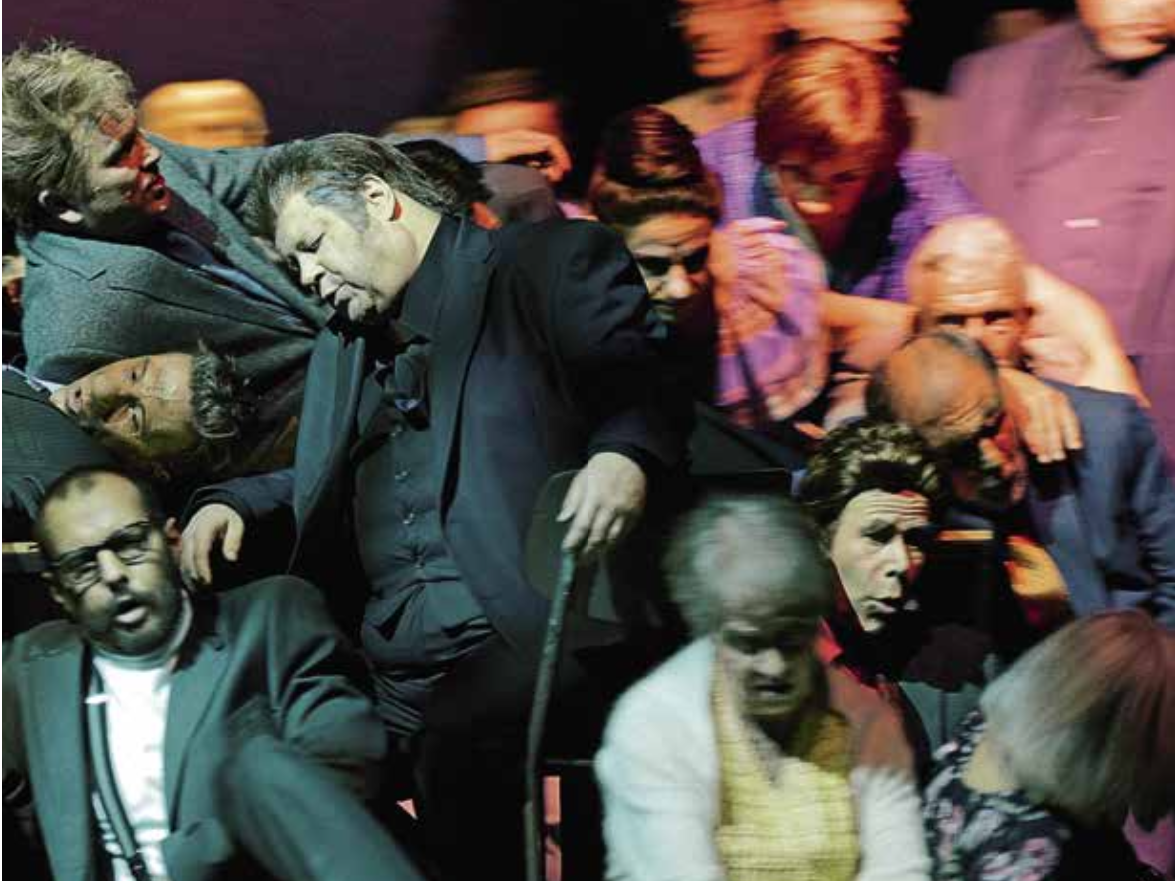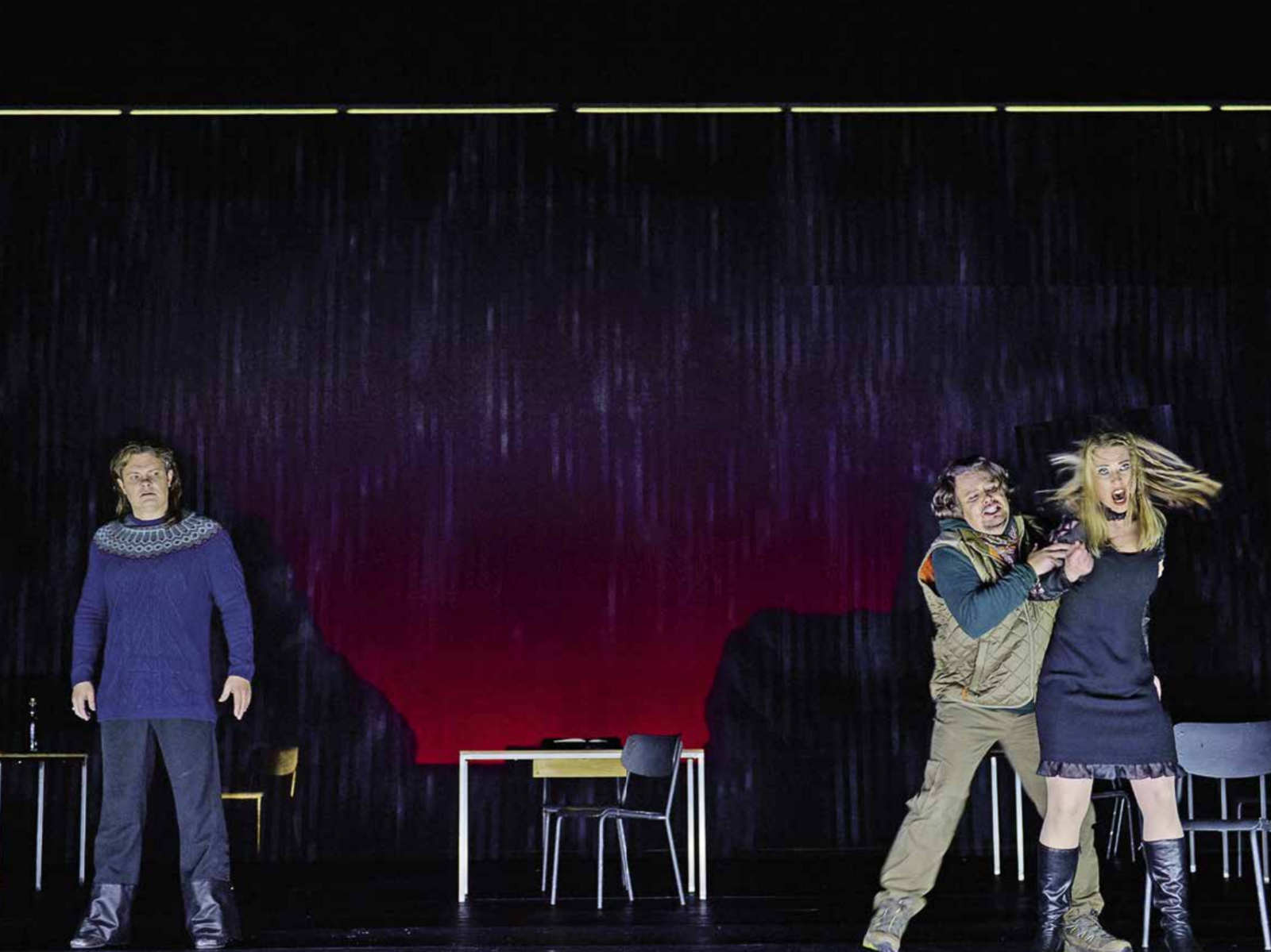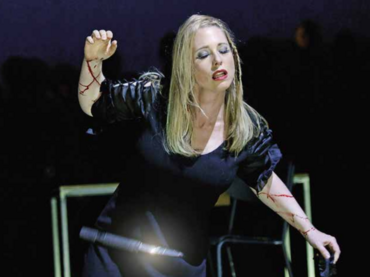
THE FLYING DUTCHMAN - OPERA BY RICHARD WAGNER
Musical direction: Modestas Pitrenas
Production: Alexander Nerlich
Stage: Stefan Mayer
Costumes: Elina Schnizler
Lighting: Andreas Enzler
Dramaturgy: Serge Honegger
Theatre St.Gallen
Premiere: 19 October 2013
Photos: © Theatre St.Gallen / Andreas J. Etter
Texts: © Theatre St.Gallen / Serge Honegger

THE SCORE AS A REVENANT
Excerpt from the article "The search for a healing place"
The creation and première of “The Flying Dutchman” marked a turning point in Richard Wagner's life. During these years, he sharpened his critical perception of politics, society and art, to which his less than favourable living conditions contributed: Wagner's lack of money, his failure as a conductor in Riga, his flight to Paris in 1839 and his fundamental existential crisis there. When the Dutchman delivers his desperate performance monologue in the opera, in which he wishes for death and longs for the end of the world, the final "blow of destruction", we can also hear the composer's frustration that the world is not as it should or could be from his powerful vocal rebellion.
Richard Wagner never let go of the opera "The Flying Dutchman" since the first prose draft in Paris in 1840 and the premiere in Dresden in 1843. The lost and rejected character of the title figure, this eternal wanderer who cannot find his home, strives for redemption and longs to be uplifted, led to several revisions of the score and in 1860, under the influence of the composition of "Tristan and Isolde", to the alteration of the overture and the end of the third act, where the motif quotation of the "Redemption Melody" is heard again instead of the fortissimo ending.
